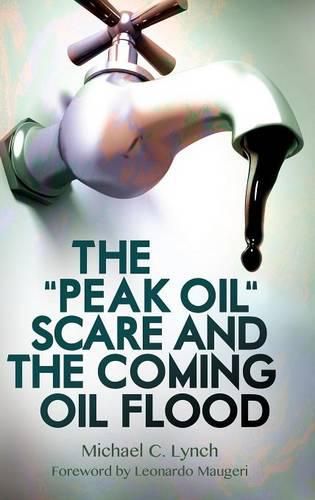Readings Newsletter
Become a Readings Member to make your shopping experience even easier.
Sign in or sign up for free!
You’re not far away from qualifying for FREE standard shipping within Australia
You’ve qualified for FREE standard shipping within Australia
The cart is loading…






Is the earth’s oil supply starting to run out, or is there far more oil than some experts believe? This book points out flaws in the research used to warn of an oil shortfall and predicts that large new reserves of oil are soon to be tapped.
In the last decade, oil experts, geologists, and policy makers alike have warned that a peak in oil production around the world was about to be reached and that global economic distress would result when this occurred. But it didn’t happen. The Peak Oil Scare and the Coming Oil Flood refutes the recent claims that world oil production is nearing a peak and threatening economic disaster by analyzing the methods used by the theory’s proponents. Author Michael C. Lynch, former researcher at Massachusetts Institute of Technology (MIT), debunks the Peak Oil crisis prediction and describes how the next few years will instead see large amounts of new supply that will bring oil prices down and boost the global economy.
This book will be invaluable to those involved in the energy industry, including among those fields that are competing with oil, as well as financial institutions for which the price of oil is of critical importance. Lynch uncovers the facts behind the misleading news stories and media coverage on oil production as well as the analytic process that reveals the truth about the global oil supply. General readers will be dismayed to learn how governments have frequently been led astray by seeming logical theories that prove to have no sound basis and will come away with a healthy sense of skepticism about popular economics.
Presents a cogent analysis that debunks the myths and exposes the agendas of those who promulgate the scarcity theory
Supplies applied economic analysis-backed by well-informed research and proven analytical methodologies-by a scholar and researcher with real-world experience
Explains how the extraction of crude oil from shale formations through hydraulic fracturing, or fracking, should result in abundant long-term supplies with much greater geographical diversity, less political risk, and increased price stability
Provides valuable insights into investing in the energy sector
$9.00 standard shipping within Australia
FREE standard shipping within Australia for orders over $100.00
Express & International shipping calculated at checkout
Is the earth’s oil supply starting to run out, or is there far more oil than some experts believe? This book points out flaws in the research used to warn of an oil shortfall and predicts that large new reserves of oil are soon to be tapped.
In the last decade, oil experts, geologists, and policy makers alike have warned that a peak in oil production around the world was about to be reached and that global economic distress would result when this occurred. But it didn’t happen. The Peak Oil Scare and the Coming Oil Flood refutes the recent claims that world oil production is nearing a peak and threatening economic disaster by analyzing the methods used by the theory’s proponents. Author Michael C. Lynch, former researcher at Massachusetts Institute of Technology (MIT), debunks the Peak Oil crisis prediction and describes how the next few years will instead see large amounts of new supply that will bring oil prices down and boost the global economy.
This book will be invaluable to those involved in the energy industry, including among those fields that are competing with oil, as well as financial institutions for which the price of oil is of critical importance. Lynch uncovers the facts behind the misleading news stories and media coverage on oil production as well as the analytic process that reveals the truth about the global oil supply. General readers will be dismayed to learn how governments have frequently been led astray by seeming logical theories that prove to have no sound basis and will come away with a healthy sense of skepticism about popular economics.
Presents a cogent analysis that debunks the myths and exposes the agendas of those who promulgate the scarcity theory
Supplies applied economic analysis-backed by well-informed research and proven analytical methodologies-by a scholar and researcher with real-world experience
Explains how the extraction of crude oil from shale formations through hydraulic fracturing, or fracking, should result in abundant long-term supplies with much greater geographical diversity, less political risk, and increased price stability
Provides valuable insights into investing in the energy sector